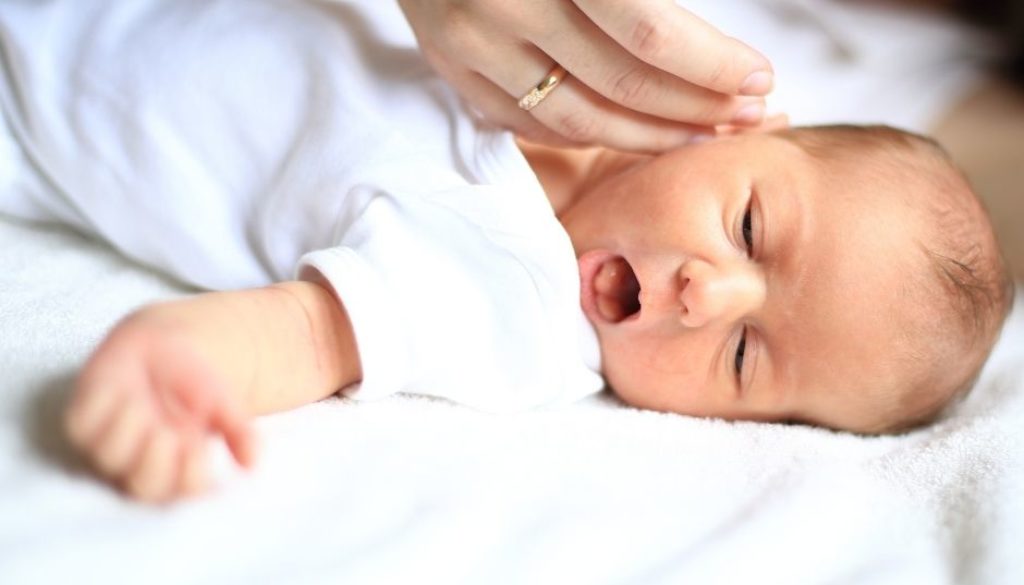How Your Baby’s Naps Affect Night Time Sleep
Sleep breeds sleep, right? Every time I am asked for help with nighttime sleep, I ask how they are sleeping during the day. Because daytime sleep plays such a huge role in nighttime sleep, and if your nap schedule is good, it’s going to be so much easier to fix issues surrounding nighttime sleep.
Three ways that your baby’s naps affect sleep at night
There are usually three ways that your baby’s naps can affect sleep at night, and usually, by eliminating this issue, you can see almost instant improvements with nighttime sleep. So what are they?
Your baby is napping too much.
Usually, when a baby starts to wake in the night or ridiculously early in the morning, I’ll want to know about naps. And many times, it turns out that cutting down either the length of the naps or dropping one altogether can make a real difference.
Newborns and younger babies aside, older babies should have a pretty regular nap schedule that you can keep a track of. Some from around three or four months old, your baby should start to show patterns of sleep during the day that you can build a schedule around. When this happens, it can be easy for some babies to actually nap a little too much during the day, and this, in turn, affects nighttime sleep.
If this is the case for you, take a look at how many naps your baby is taking each day. Maybe they got up so early that she was exhausted by midmorning and took a nap? Then bedtime seemed a long way off, so when they fell asleep again later that afternoon, you didn’t argue? The problem here is that all that daytime sleep will mean another restless night or early morning!
So what to do?
If your baby doesn’t usually have two naps, try bringing bedtime forward a little instead of that second nap, and gradually move it back again ten minutes every other night until bedtime is back at the usual time. If your baby still takes two naps a day, it may be time to drop one of them. Read this post for info on how to do that.
Your baby isn’t napping enough.
So from too much daytime sleep to too little. We can’t win! But a baby who doesn’t sleep enough will be overtired, irritable and fussy. And that means they are going to be more likely to wake at night and more likely to find it hard to even settle in the first place. Not enough daytime sleep is the most common issue for families, and so many babies out there constantly fight sleep at bedtime.
What to do?
Prioritise naps. Make sure you have a good nap schedule that works for you, and make sure you stick to it. If you can be at home for naps, especially the first one, then do. The first nap of the day is the most restorative and, therefore, the most important. If your baby wakes earlier than usual from their nap or even misses a nap, then you may need to bring bedtime forward a little. Play it by ear, and let your baby be your guide.
Your baby’s going through a nap transition.
Nap transitions can be hard work! And when you’re in the middle of one, your well-executed schedule can seem like nothing but a distant memory. But fear not, and repeat after me: This too shall pass because it will. And you can help it pass as smoothly as possible too.
Nap transitions usually take place around three months, five months, nine months, 15 months and 18 months. Your baby will go from four to five naps per day, down to just one. So from newborn to 18 months, you can expect a lot of changes to your routine. By the time your little one is four years old, naps will most likely be long forgotten, but in the time between then and now, you’ll need your wits about you!
You can tell a nap transition is on the way because your baby may start to refuse to sleep when they used to suddenly. Before that, your baby’s routine may start to change as they figure out when and how much sleep they actually need. This can be frustrating because just as you think you have a routine, you can work with, it all changes! And for some, this can seem like a constant occurrence. In addition, your baby may also change the length of time she sleeps for too. What can you do? Not a lot. Go with the flow. Depending on your baby, you might want to go straight in and change your routine completely, swiftly guiding your baby into a new one that works just as well. Or you might want to take things a little more slowly, easing your baby into a new routine gradually and with minimal disruptions.
During a nap transition, nighttime sleep can be affected, but rest assured they are normal and won’t last forever.

Want more help gently sleep training?
I’ve got you covered. Join the membership to access…

Gentle sleep training support
 Over 40 masterclasses, helping you with sleep changes and issues.
Over 40 masterclasses, helping you with sleep changes and issues.

Get all your questions answered in a live weekly Q & A.

+ so much more – 1 on 1 opportunities, bedtime meditations, downloads, all the help you could need.






